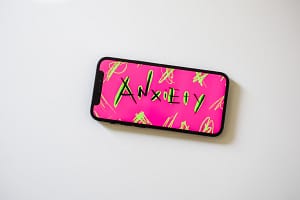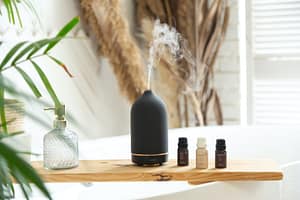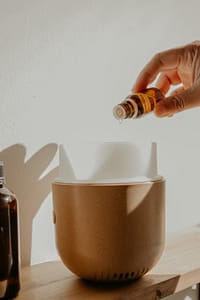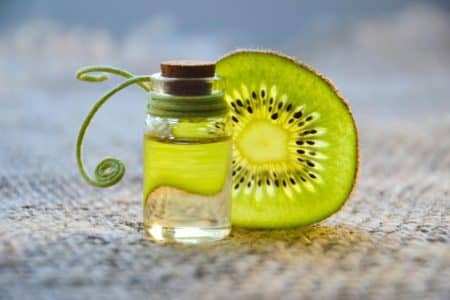[grwebform url=”https://app.getresponse.com/view_webform_v2.js?u=wfNAY&webforms_id=57753701″ css=”on” center=”off” center_margin=”200″/]
Visit Our Etsy Store for Wellness Resources! https://www.etsy.com/ca/shop/BeBestuWellnessDepot
Essential oils and anxiety are connected. Here’s a link to our article explaining how 7 Habits can increase anxiety. Let’s read on to find out how essential oils can minimize anxiety!
Is Aromatherapy Effective in Reducing Anxiety?

Aromatherapy, or the use of essential oils for aromatherapy, is becoming a more common approach to relieve stress at home, work, and even in schools. Despite the fact that no clinical trials have been conducted specifically on this topic, considerable positive feedback from users has led many researchers to believe that it works.
How are Essential Oils and Aromatherapy Related?
Essential oils and aromatherapy are related in that essential oils are the concentrated form of plant aroma. They are extracted from plants by distillation or supercritical fluid extraction. The plant material is then typically ground into a fine powder and diluted with a carrier oil, such as grapeseed oil, Jojoba oil, or olive oil. Essential oils are considered to be therapeutic agents because they have a wide range of properties that can be used for healing.
Essential Oil Aromatherapy for Treating Ailments
Essential oil aromatherapy is thought to be effective in treating depression, anxiety disorders like obsessive-compulsive disorder (OCD), and other stress-related ailments including post-traumatic stress disorder (PTSD), all of which are common in today’s culture. Approximately 33% of the general population suffers from anxiety problems at some point in their lives. (1).
While some individuals believe that aromatherapy is only useful as a complementary medication, many doctors prescribe it as an alternative to chemical pharmaceuticals or cognitive behavioural therapy for anxiety problem patients who haven’t found relief.
Smells have the potential to make us hungry, thirsty, and even bring back memories we had forgotten about. They also have the ability to calm and relax us. Lavender, cedar wood, vetiver, jasmine, patchouli, sandalwood, bergamot, and ylang-ylang are all relaxing essential oils. Although these oils are effective for the majority of people, studies have shown that bergamot, in particular, might actually aggravate anxiety. This is especially common among autistic youngsters. (3)
As a result, it’s always a good idea to consult a doctor before attempting to cure your anxiety on your own.
What is Aromatherapy?

How Can Aromatherapy Help?
These include pain treatment, but perhaps the most intriguing benefit is its potential capacity to cure anxiety.
Many research on patients with anxiety are being undertaken to see if there are any benefits to using aromatherapy. So far, the results have been very positive (5).
I imagine that being in the ICU while undergoing major surgery would make anyone nervous. Aromatherapy has been demonstrated to effectively lower anxiety and improve calm in patients in this circumstance, according to one study (6).
Another event that causes anxiety in many people is going to the dentist. Even the most level-headed person can become stressed just by thinking about it. The good news is that aromatherapy has been shown to reduce children’s stress levels prior to dental treatment. (7)
Not only can youngsters benefit from lessened anxiety when visiting the dentist. Aromatherapy has also been shown to make adults feel less apprehensive. This was a modest study, but the results were sufficient to demonstrate that aromatherapy is not only useful in lowering dental-related anxiety, but it can also improve quality of life for these patients. (8)
Lavender oil, according to many aromatherapists, is by far the finest for relieving anxiety. (9)
How to Apply Aromatherapy

It’s no surprise that massage therapists use aromatherapy into their business model because of its capacity to soothe people and make them feel more serene.
Aromatherapy Advantages
Aromatherapy has a seemingly limitless list of advantages, especially when one considers its non-invasive nature and the fact that anyone may make essential oils at home. The use of these natural chemicals has demonstrated to be effective in alleviating symptoms associated with anxiety disorder patients. More study is being conducted to identify the processes by which they work and how much of them are required to achieve the desired results. These studies will presumably aid doctors in more effectively treating anxiety problem patients in a safe and cost-effective manner.
Aromatherapy is a fantastic alternative for patients with anxiety disorders because it is non-invasive and safe. Essential oils, unlike chemical medicines, do not influence brain function by changing the way neurotransmitters work in the brain to send out mood-boosting messages. Instead, they merely stimulate certain odours that improve moods or calm emotions without having any negative side effects.
Despite the fact that being pregnant is a normal, natural state, many women experience anxiety, particularly when thinking about giving birth. Despite the belief that aromatherapy is harmful to the unborn child, it has been proven to be safe and effective in reducing stress in pregnant women. (10) It’s important to consult your doctor before taking essential oils during pregnancy just to be safe.
Allergy sufferers are another group of people who may not benefit from aromatherapy. People with allergies should take particular measures because essential oils might cause allergic reactions in some people. Essential oils should always be diluted with a carrier oil and not used on their own for this reason and general safety.
Patients with anxiety disorders who wish to explore natural therapies without worrying about side effects or drug combinations can use aromatherapy to help them cope with their individual anxiety symptoms.
Aromatherapy Around the House

Why not give aromatherapy a try? It’s a natural method to decrease tension and anxiety.
Don’t Forget to Visit Our Etsy Store for Wellness Resources!
https://www.etsy.com/ca/shop/BeBestuWellnessDepot
[grwebform url=”https://app.getresponse.com/view_webform_v2.js?u=wfNAY&webforms_id=57753701″ css=”on” center=”off” center_margin=”200″/]
References
1. Anxiety Disorder Epidemiology in the Twenty-First Century https://www.ncbi.nlm.nih.gov/pmc/articles/PMC4610617/
2. Human olfactory impacts on hunger and satiety https://pubmed.ncbi.nlm.nih.gov/16545846/
3. A Meta-Analysis of Bergamot Inhalation for Anxiety
https://fhrfoundation.org/bergamot-aromatherapy-anxiety/
Terpenes: Therapeutic and Medicinal Uses https://www.ncbi.nlm.nih.gov/pmc/articles/PMC7120914/ Terpenes: Therapeutic and Medicinal Uses
5. A Systematic Review of Aromatherapy’s Anxiolytic Effects in People with Anxiety Symptoms https://core.ac.uk/download/pdf/37962413.pdf
6. Aromatherapy’s effects on patient sleep quality and anxiety https://onlinelibrary.wiley.com/doi/abs/10.1111/nicc.12198
7. Aromatherapy lowers kid anxiety during dental appointments https://www.massagemag.com/aromatherapy-reduces-child-anxiety-during-dental-appointments-13209/ (the actual study may be found at https://www.ncbi.nlm.nih.gov/pmc/articles/PMC3732892/).
8. A Randomized Controlled Trial of Aromatherapy on Dental Anxiety in Orthodontic Patients https://www.ncbi.nlm.nih.gov/pmc/articles/PMC6773455/
9. Lavender essential oil for anxiety https://www.ncbi.nlm.nih.gov/pmc/articles/PMC6007527/
10.The effect of aromatherapy and massage on the fetus in antenatal anxiety
https://www.researchgate.net/profile/Janet-Bastard/publication/7369453 Aromatherapy and massage for antenatal anxiety Its effect on the fetus/links/59df2004a6fdcca0d336dbc3/Aromatherapy-and-massage-for-antenatal-anxiety-Its-effect-on-the-fetus.pdf

